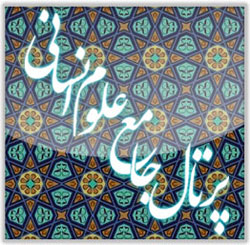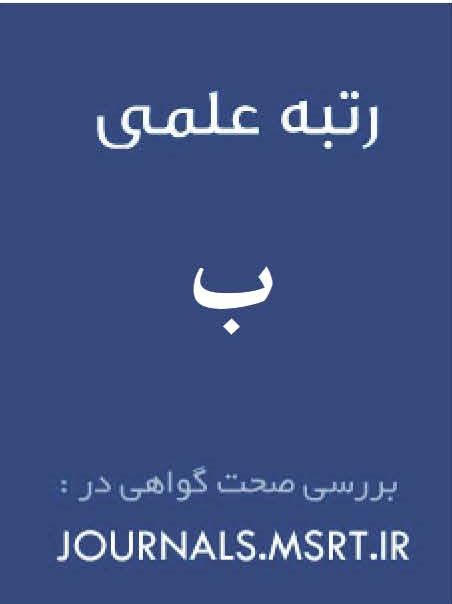تحلیل تطبیقی تنهایی وجودی در اندیشه اروین یالوم و فراق عرفانی در آثار مولوی و حافظ
کلمات کلیدی:
تنهایی وجودی, اروین یالوم, فراق عرفانی, عرفان اسلامی, مولوی, حافظ, معنا, اضطراب اگزیستانسیالچکیده
تنهایی، یکی از بنیادیترین تجربههای انسانی در روزگار مدرن است که در دستگاههای معرفتی گوناگون معانی متفاوتی یافته است. در رواندرمانی اگزیستانسیال، اروین یالوم تنهایی وجودی را یکی از چهار دغدغه اساسی هستی انسان میداند و آن را تجربهای درونی، انفکاکی و غیرقابل حذف تلقی میکند. در مقابل، سنت عرفانی اسلامی، بهویژه در آثار مولوی و حافظ، تجربهی جدایی و بیکسی را در قالب «فراق» تفسیر میکند؛ مفهومی که برخلاف تنهایی یالومی، نه نشانِ پوچی، بلکه نشانهای از حضور غایب معشوق الهی و آغازی برای سلوک عاشقانه بهسوی وصال است. این پژوهش با هدف تحلیل تطبیقی دو دیدگاه مذکور، با روش کیفی و رویکرد تطبیقی ـ تحلیلی، به بررسی هستیشناسی، انسانشناسی و معناشناسی تنهایی در متون اصلی یالوم، مثنوی مولوی و دیوان حافظ پرداخته است. دادهها با روش تحلیل محتوای کیفی استخراج و در قالب مقولههای مفهومی سازماندهی شدند. یافتهها نشان میدهد که تنهایی در منظومه فکری یالوم، تجربهای بیپناه و فردمحور است که راهحل آن خلق معنا از درون است؛ اما در عرفان اسلامی، فراق تجربهای پناهدار و محبوبمحور است که با امید وصال و اتصال به حقیقت همراه میشود. بر این اساس، این پژوهش ضمن روشن ساختن تفاوتهای بنیادین دو رویکرد، امکان گفتوگو میان رواندرمانی اگزیستانسیال و عرفان اسلامی را نیز مطرح میکند.
دانلودها
مراجع
1. Yalom ID. Existential Psychotherapy. New York: Basic Books; 1980.
2. Yalom ID. Staring at the Sun: Overcoming the Terror of Death. San Francisco: Jossey-Bass; 2008.
3. Malekian M. Loneliness, Silence, and Love. Niloofar Cultural Website. 2006.
4. Yalom ID. Existential Psychotherapy. Tehran: Nei Publishing; 2011.
5. Yalom ID. When Nietzsche Wept. Tehran: Karvan Publishing; 2005.
6. Zarrinkoub A. The Secret of the Reed: A Commentary on the Masnavi-ye Ma'navi. Tehran: Elmi Publishing; 2001.
7. Shafiei-Kadkani MR. Under the Shadow of the Palm of Guardianship: A Reflection on the Mysticism of Hafez. Tehran: Sokhan Publishing; 2015.
8. Malekian M. Loneliness: Reality or Illusion? Niloofar Cultural Website. 2014.
9. Maslow A. Toward a Psychology of Being. New York: D. Van Nostrand; 1968.
10. Fromm E. The Art of Loving. New York: Bantam Books; 1963.
11. Krug OT. A comparative study of James Bugental and Irvin Yalom: Two masters of existential psychotherapy. Existential Analysis. 2007;18(2):149-66.
12. Heidegger M. Being and Time. New York: Harper & Row; 1962.
13. Josselson R. Irvin D. Yalom: On Psychotherapy and the Human Condition. New York: Jorge Pinto Books; 2008.
14. Yalom ID. The Gift of Therapy: An Open Letter to a New Generation of Therapists and Their Patients. New York: HarperCollins; 2002.
دانلود
چاپ شده
ارسال
بازنگری
پذیرش
شماره
نوع مقاله
مجوز
حق نشر 2025 زهرا سادات هاشمی

این پروژه تحت مجوز بین المللی Creative Commons Attribution-NonCommercial 4.0 می باشد.








